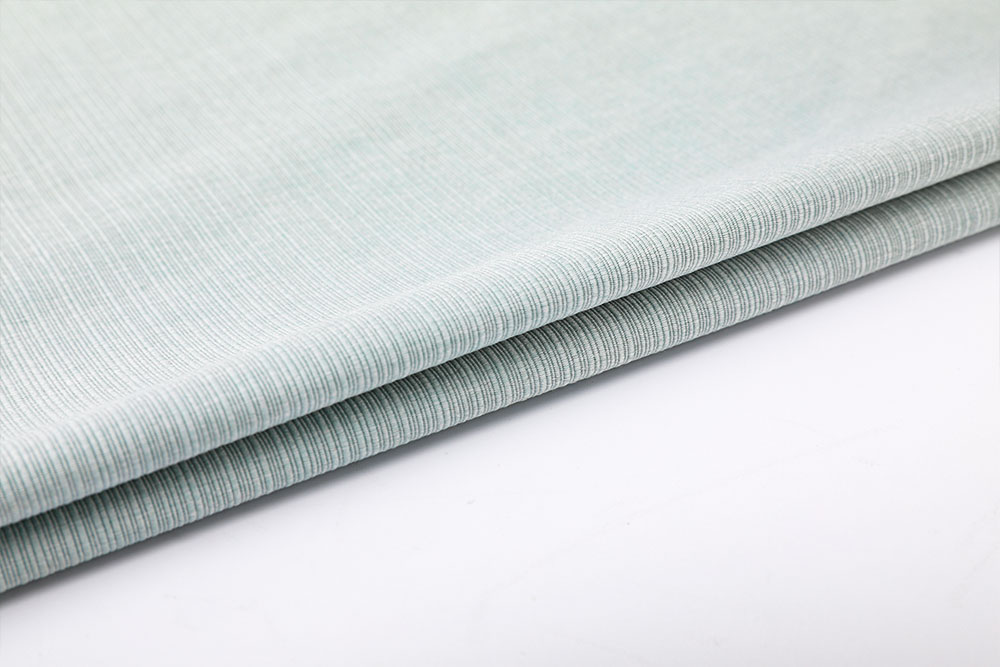When designing modern hotel interiors, aesthetics often take center stage—but smart buyers know that true value lies in how materials impact comfort, cleanliness, and sustainability. This broader concept, known as Indoor Environmental Quality (IEQ), is gaining ground across the hospitality industry, and soft furnishings like curtains play a more important role than many assume. Among the many options on the market, IFR linen-like curtain fabric stands out not only for its elegant appearance but also for its measurable contributions to a healthier, more comfortable indoor environment.
A key part of IEQ is thermal comfort. Well-designed curtains help regulate indoor temperatures by insulating against heat and cold. In hotel rooms with large windows or glass facades, the fabric’s ability to block heat during the summer and retain warmth in the winter can reduce strain on HVAC systems. IFR linen-like curtain fabric, known for its tightly woven structure and blackout backing, excels in this function. It creates a comfortable indoor climate for guests while also supporting energy efficiency—something hotel operators are increasingly prioritizing as energy costs rise and sustainability becomes a brand value.

Equally important is the role of curtains in acoustic management. Thick, textured fabrics help absorb sound, reduce echo, and dampen outside noise—critical in city hotels or busy resorts where peace and quiet define the guest experience. The dense weave of IFR linen-like curtain fabric, combined with its heavier weight, offers effective sound dampening without the need for additional acoustic panels. This makes it a dual-purpose material: one that elevates design while enhancing comfort.
Air quality, too, is part of the IEQ equation, especially with growing awareness of allergies and sensitivities. Synthetic fabrics have evolved significantly, and today’s advanced polyesters can be engineered with anti-static and anti-bacterial properties that reduce the accumulation of dust and airborne particles. In this respect, IFR linen-like curtain fabric offers a practical advantage—it resists moisture absorption, reduces the buildup of allergens, and is easy to clean, making it a hygienic choice for high-turnover environments like hotels.
The fire safety aspect is another way this fabric contributes to a safer indoor environment. Because the IFR polyester used in these curtains is inherently flame-retardant, there’s no need for chemical coatings that can deteriorate or release fumes. The safety performance is built into the fiber itself, and it stays intact throughout the product’s lifecycle. This makes IFR linen-like curtain fabric especially suitable for hotels that must meet stringent fire codes without sacrificing aesthetic standards.
From an operational perspective, ease of maintenance plays a role in preserving IEQ. Curtains that wrinkle easily or degrade with regular washing can create an impression of neglect, even in well-run facilities. However, the linen-like fabric used in these curtains maintains its form, resists creasing, and retains its two-tone visual depth, even after repeated care cycles. This reliability helps maintain a high standard of visual and environmental quality throughout the life of the product.
For hospitality professionals looking to balance guest satisfaction with long-term building performance, curtain fabric might not be the first consideration—but it should be. With IFR linen-like curtain fabric, you’re not just choosing a beautiful material; you’re investing in a multi-functional solution that supports health, comfort, and operational excellence. As a manufacturer with deep experience in textile innovation, we’re proud to offer this smart, stylish, and high-performance option to clients who understand that great interiors are built on more than just looks.
























 Email: [email protected]
Email: [email protected] Tel: +86-512-63221899
Tel: +86-512-63221899


 English
English Español
Español

